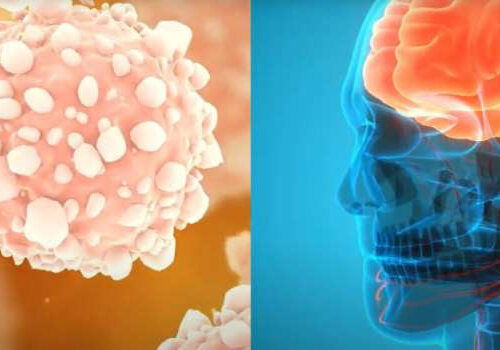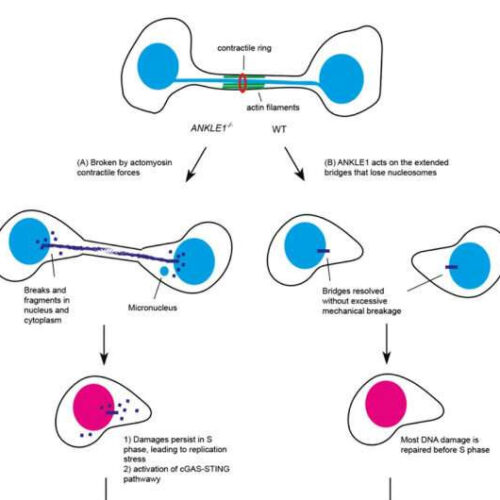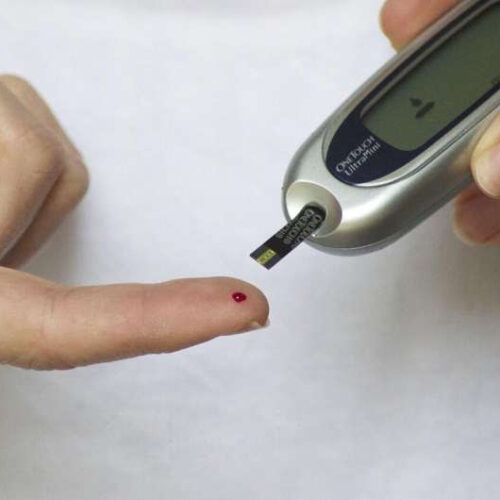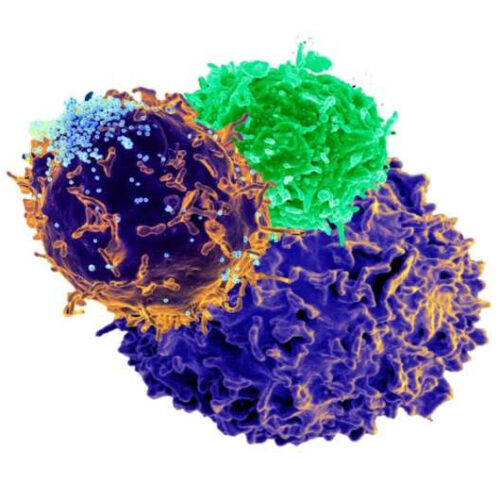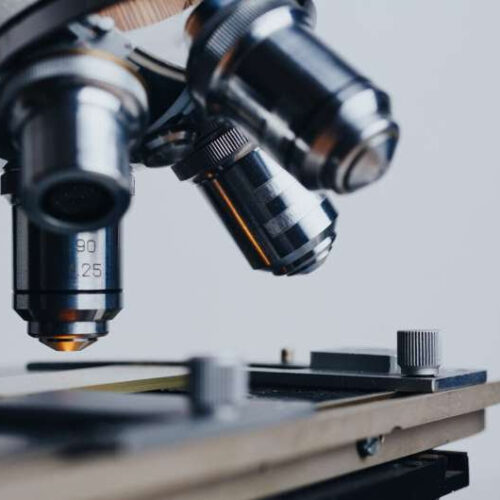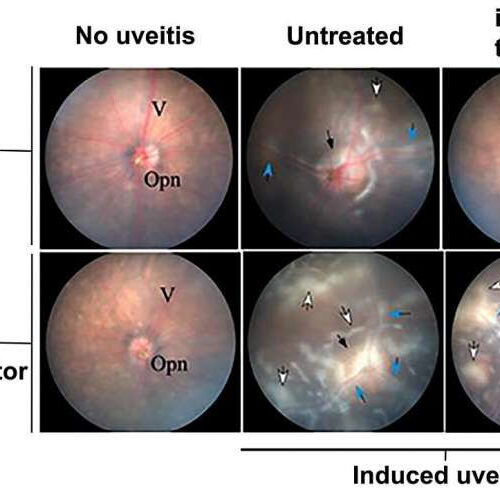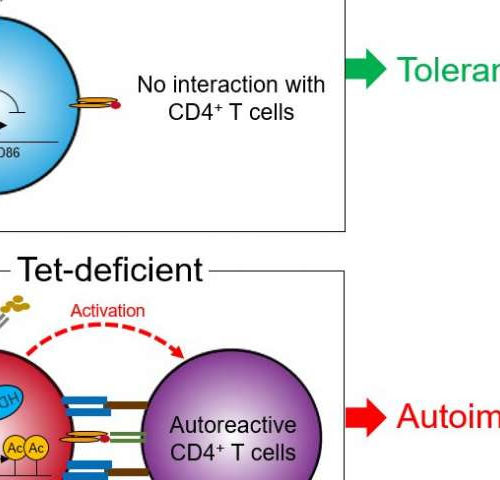by Pacific Northwest National Laboratory Scientists have taken an important step forward in predicting who will develop type 1 diabetes months before symptoms appear. In a paper published online on June 29 in Cell Reports Medicine, researchers at the Department of Energy’s Pacific Northwest National Laboratory and their colleagues identify a set of altered proteins that predict...
Tag: <span>Autoimmunity</span>
Biologists reveal a scissor enzyme that cuts the chromatin bridge and prevents DNA damage and autoimmunity
by The University of Hong Kong Knockout of ANKLE1 induces excessive accumulation of cytosolic DNA, leading to activation of immune responses. Credit: Dr Gary Ying Wai Chan and Dr Huadong Jiang A research team led by Dr. Gary Ying Wai Chan from the School of Biological Sciences at The University of Hong Kong (HKU), has revealed...
Researchers test a novel hypothesis to explain the cause of autoimmunity in patients with type 1 diabetes
by Boston University School of Medicine Credit: Pixabay/CC0 Public Domain Type 1 diabetes (T1D) is an autoimmune disease in which the pancreas makes little or no insulin. The details on the events that occur during autoimmune destruction of the pancreatic beta-cells have been studied extensively yet the mystery of what causes autoimmunity is unknown. In a...
Exploring autoimmunity’s regulatory roots
by Mark Wanner, Broad Institute of MIT and Harvard Regulatory T cells in retroviral infections. Credit: Kim Hasenkrug, Dave Dorward and Austin Athman, Rocky Mountain Laboratories, NIAID, NIH. Wikimedia Commons, CC BY-SA 4.0 Our genome contains vast networks that regulate the activity of protein-coding genes. Variations in this regulatory DNA (which does not encode proteins) may...
Impaired neutrophils in autoimmunity
by Leigh MacMillan, Vanderbilt University Credit: Pixabay/CC0 Public Domain Patients with autoimmune diseases such as systemic lupus erythematosus (SLE) have higher blood levels of the protein S100A9, but the source of this protein has not been identified. Andrew Monteith, Ph.D., Eric Skaar, Ph.D., MPH, and colleagues reasoned that high S100A9 may reflect increased levels of...
Discovering a new B cell that tempers autoimmunity
by National Institutes of Health Photographs of mouse retina showing the effect of uveitis treatment with i27-Bregs. The left column represents a normal retina. Photos in the middle and right column are retinal images from mice with uveitis, untreated or treated with i27-Bregs. The central spot is the optic nerve head. Note the absence of...
Defeating pathological autoimmunity with kinase inhibition
by John Hewitt , Medical Xpress Credit: Wikipedia Autoinflammatory syndromes are often the result of genetic mutations that ultimately compromise neutrophils, macrophages and other cells of the innate immune system. Rather than showering sufferers with broad immunosuppressives, a more satisfactory response can frequently be obtained using select anti-inflammatory drugs like anti-TNF or anti-IL-1β. A similar...
Contrary to popular claim on social media, RNA vaccines do not alter our DNA
Inaccurate: RNA from a vaccine would not be able to directly alter our DNA, in part because of the chemical differences between the two nucleic acids. RNA also would not persist long enough to cause autoimmunity. Autoimmune diseases are chronic in nature, whereas RNA has a very short lifespan, being quickly degraded after it has...
The protein that stands between us and autoimmunity
by Osaka University Tet-mediated B cell tolerance Tet2/3-deficient B cells are activated by self-antigen and express exaggerated amount of CD86. Then those B cells stimulate autoreactive CD4+ T cells, resulting in autoimmune response. Credit: Osaka University The immune system is supposed to protect from external microbial invaders, but sometimes it turns its efforts inward, potentially...
Birmingham scientists ‘re-train’ immune system to prevent attack of healthy cells
The body’s immune system can be re-wired to prevent it from recognising its own proteins which, when attacked by the body, can cause autoimmune diseases like multiple sclerosis, a significant new study by UK scientists has found. Autoimmune diseases are caused when the immune system loses its normal focus on fighting infections or disease within...

